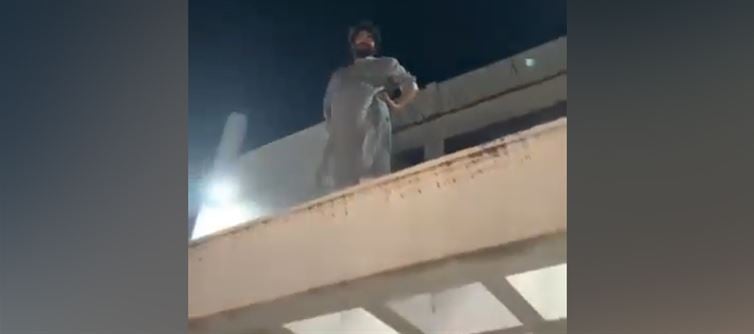
The Rooftop Messiah: Osama Shahab's Triumph of Terror Over Talent
The image is seared into memory: Osama Shahab, draped in a kurta, commanding a crowd like a feudal lord. It's not just a victory; it's a spectacle of power. Eighty-eight thousand voters chose him – a man whose lineage reeks of violence, whose father, Shahabuddin, was a name synonymous with terror. This isn't democracy; it's a dynasty. The crowd below, their phones lighting up the night, isn't just celebrating a win; they're worshipping a legacy of fear.
Contrast this with KC Sinha, a man whose mind mapped the universe of mathematics. Fifteen thousand votes. A genius reduced to a statistic. bihar didn't just reject intellect; it spat on it. The rooftop isn't just a stage; it's a symbol of how terror trumps talent, how the shadow of a gangster looms larger than the light of a scholar.
Numbers Don't Lie: 88,000 vs. 15,000 – The Mathematics of Madness
Let's break it down: 88,000 votes for Osama Shahab. 15,000 for KC Sinha. The numbers scream a story of betrayal. Shahabuddin's ghost didn't just haunt Siwan; it possessed it. Voters didn't choose a candidate; they chose a protector, a name that promised safety in a land where law is a luxury.
Sinha's loss isn't just personal; it's collective. India's brightest mind, sidelined by a state that values muscle over intellect. The 73,000-vote gap isn't just a margin; it's a chasm between what bihar could be and what it has become. This isn't an election result; it's a verdict on the state's soul.
The Ghost of Shahabuddin: How Fear Outvotes Hope
Shahabuddin's legacy isn't just a memory; it's a currency. In Siwan, his name buys votes like rice in a famine. Osama Shahab didn't campaign on policy; he campaigned on fear. The electorate didn't vote for change; they voted for continuity – the continuity of a system where power is inherited, not earned.
Hope, embodied by Sinha, was a foreign concept. In a land where survival trumps aspiration, a mathematician's promise of progress is as alien as peace in a war zone. The ghost of Shahabuddin didn't just win; it reminded bihar that hope is a luxury it can't afford.
The Mathematician's Mourning: KC Sinha's Defeat and the Death of Reason
KC Sinha's defeat isn't just a loss; it's a lament. A man who could have charted Bihar's future was charted out by a past it can't escape. His 15,000 votes are a testament to a minority that still believes in reason, but they're drowned by a majority that bows to brute force.
Sinha's mourning isn't silent; it's a scream echoed by every intellectual silenced by mob rule. His defeat isn't just his; it's India's. A nation that can't protect its brightest minds is a nation that has lost its way. The death of reason in bihar is a warning to the rest of the country.
The Soul of Democracy: How Bihar's Choice Reflects a Rotting Republic
This isn't just about Siwan; it's about India. When a gangster's son wins over a genius, democracy doesn't just falter; it rots. Bihar's choice reflects a republic where fear outweighs freedom, where the rule of law is replaced by the law of the jungle.
The rooftop dance isn't just Osama Shahab's victory lap; it's democracy's dirge. The flashing phones aren't capturing a moment; they're documenting a decay. bihar didn't just vote; it voted for a future where intellect is irrelevant, where power is inherited, not earned. The soul of democracy didn't just die a little; it was crucified.




 click and follow Indiaherald WhatsApp channel
click and follow Indiaherald WhatsApp channel